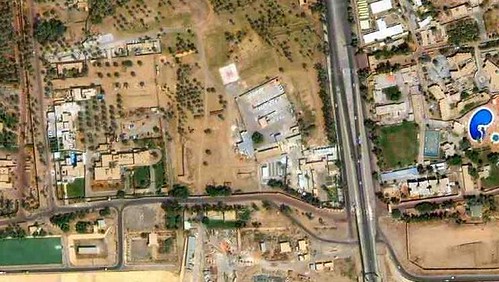
But last week President Barack Obama said "combat missions" were over in Iraq. And Thursday MSNBC's Richard Engel made like the Monkee's uncle wailing on about "The Last Train To Clarksville." So how can it be?
It can be because it is. It can be because the Iraq War has not ended and will not be ending in 2010. With the possibility of extending or replacing the Status Of Forces Agreement or the militarization of diplomacy, it doesn't appear that the Iraq War will be ending in 2011 either.
But if you spin in circles real hard, you might be able to make a monkey's uncle out of yourself too -- the way the press has.
As Bill Van Auken (WSWS) observed, "The White House and the Pentagon, assisted by a servile media, have hyped Thursday’s exit of a single Stryker brigade from Iraq as the end of the 'combat mission' in that country, echoing the ill-fated claim made by George W. Bush seven years ago." As Cindy Sheehan (Peace of the Action) points out, "If the troops aren’t combat troops any more, then let’s take away their guns, tanks, drones, airplanes, helicopters, humvees, bases, body armor, etc and have them live in apartments in Baghdad -- and speaking of that, why don’t we de-fortify the Green Zone (that was also just rebranded to 'International Zone') if everything is so hunky-dory. Also, the 3rd Armored Cav that is leaving for Iraq from Ft. Hood soon should refuse to go since the war is over!"
The war drags on. It hasn't been ended.

And the Iraqis know that better than anyone as was noted on the most recent edition of CounterSpin, when Peter Hart spoke with Hannah Gurman:
Hannah Gurman: Well it's really hard to say where to begin. By almost every measure with respect to security, the state of Iraqi politics and maybe most importantly Iraqis to basic resources and the state of Iraq's infrastructure. There are things that the mainstream story just isn't illuminating. In terms of infrastructure, for example, there are still many, many Iraqis who do not have electricity. They have about two to three hours of electricity a day. And the latest Brookings Index shows that there are 30 - 50,000 private generators making up for that gap between the national grid and what people actually need. So that's just one example of the basic situation on the ground that we don't really hear that much about from Obama or from Ambassador Christopher Hill when they are touting the success of the surge narrative.
Peter Hart: It's interesting, those Brookings numbers used to be widely cited in the media when they wanted to cite progress in the Iraq War. You don't hear them cited as often now. Perhaps because the findings are rather dismal.
Hannah Gurman: Yeah and that gets to heart of really what Iraqi citizens see on the ground and they point to the every day situation. So it is interesting that that's one of the things that we're really not hearing very much about in terms of the surge narrative. We're hearing a lot more about the decreases in violence, we're hearing a lot more about the optimism of Iraqi politics and even with respect to their things, there are things to be questioned.
It's still a disaster for the Iraqi people, they still live in a war zone. But Barack thinks he can make a pronouncement and things automatically change? He thinks he can simply rename and we'll all go along?
He has good reason to believe that. He promised withdrawal of "combat troops" from Iraq in 16 months and then lowered it to 10 months. He met neither deadline but that didn't stop people from lying and serve him with praise for meeting his campaign 'promise.' He's a petulant baby, as Maureen Dowd has noted, and this is before he's ever really gotten tough press.
Having yet again lied to the American people, Barack's going to find out real quick that it was this lie that firmly changed the way he was seen. And deaths on all sides will serve as the constant reminder that, in 2008, America elected one liar-in-chief to replace another.
